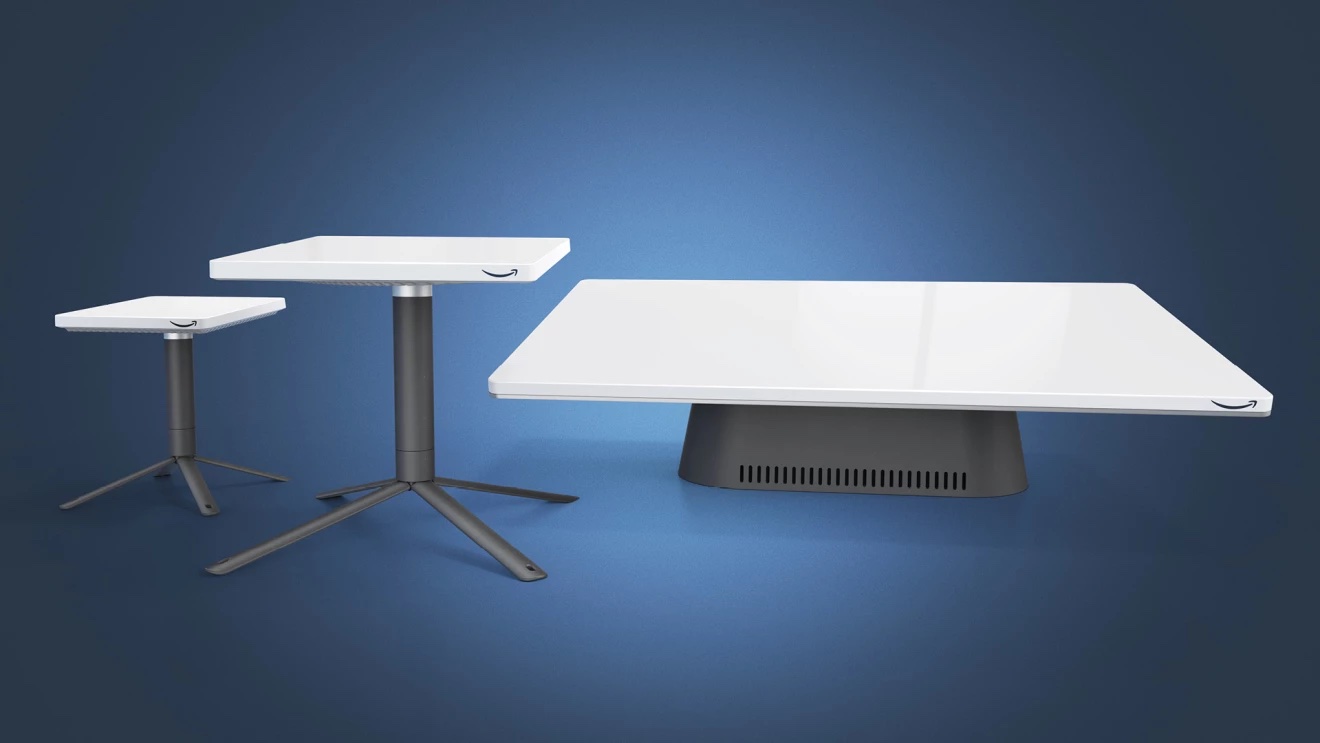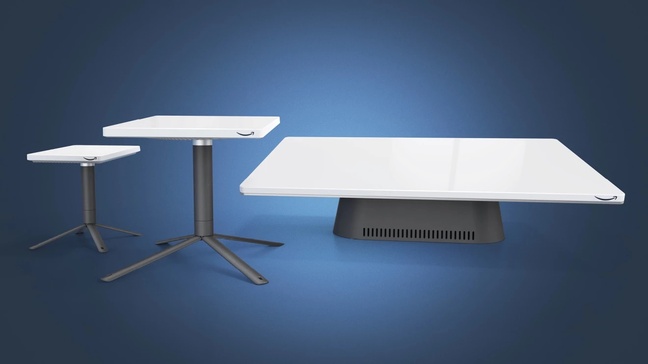Amazon: Behold Our Antennas, Which You Cannot Use Just Yet

Amazon has unveiled three antennas for the internet super-souk's upcoming Kuiper satellite broadband service.
They consist of two squares and a rectangle – geometry favored by rival SpaceX's Starlink, though Musk's kit sits at a rakish angle. Amazon's hardware – based on a single aperture phased array design – lays flat, as if to invite a coffee mug.
"Project Kuiper is Amazon's low Earth orbit (LEO) satellite network," the biz said on Tuesday. "Its mission is to bridge the digital divide by providing fast, affordable broadband to communities unserved or underserved by traditional communications technologies."
The standard customer terminal is an 11-inch square, about one inch thick, and weighs less than five pounds without its mounting bracket.
Amazon has not disclosed a price, but expects its residential transceiver will cost less than $400 to manufacture. The table-like antenna is said to be capable of delivering speeds of up to 400Mbit/sec.
If that optimistic figure proves to be true – Amazon has yet to launch the 3,236 satellites planned to provide internet service – Project Kuiper will compare favorably to Starlink, which says its expected residential download speed should be 20–100Mbit/sec.
According to Ookla, Starlink delivered median speeds of more than 100Mbit/sec in 10 out of 15 European countries during the fourth quarter of 2022.
Amazon is also offering a 7-inch ultra-compact terminal. It's expected to weigh about a pound and to be capable of shuttling bits at no more than 100Mbit/sec. Then there's the high-bandwidth business model, measuring 19 inches by 30 inches, that aims to provide speeds up to 1Gbit/sec.
The three antennas rely on an Amazon-designed baseband chip known by the development name "Prometheus" – a figure from Greek mythology co-opted for brand aggrandizement, rather than his mythical bestowal of fire and the repeated rending of his liver by an eagle.
"Prometheus combines the processing power of a 5G modem chip found in modern smartphones, the capability of a cellular base station to handle traffic from thousands of customers at once, and the ability of a microwave backhaul antenna to support powerful point-to-point connections – and it packs all of that into a single custom chip," said Amazon.
- Boeing signs off design of anti-jamming tech that keeps satellites online
- UK antitrust watchdog provisionally clears Viasat's $7.3B buy of Inmarsat
- Chinese defence boffins ponder microwaving Starlink satellites to stop surveillance
That sounds fast, but it's not coming very soon, thanks in part to the regulatory hurdles for which Amazon's rivals have lobbied. Project Kuiper begins with two prototype satellites – Kuipersat-1 and Kuipersat-2 – scheduled for space on a United Launch Alliance (ULA) Vulcan Centaur rocket "in early 2023."
Amazon then expects to begin preparing to offer commercial service, with the mass production of satellites by the end of 2023. Production satellites look likely to launch in the first half of 2024 and early customers should gain access to Project Kuiper broadband later that year. ®
From Chip War To Cloud War: The Next Frontier In Global Tech Competition
The global chip war, characterized by intense competition among nations and corporations for supremacy in semiconductor ... Read more
The High Stakes Of Tech Regulation: Security Risks And Market Dynamics
The influence of tech giants in the global economy continues to grow, raising crucial questions about how to balance sec... Read more
The Tyranny Of Instagram Interiors: Why It's Time To Break Free From Algorithm-Driven Aesthetics
Instagram has become a dominant force in shaping interior design trends, offering a seemingly endless stream of inspirat... Read more
The Data Crunch In AI: Strategies For Sustainability
Exploring solutions to the imminent exhaustion of internet data for AI training.As the artificial intelligence (AI) indu... Read more
Google Abandons Four-Year Effort To Remove Cookies From Chrome Browser
After four years of dedicated effort, Google has decided to abandon its plan to remove third-party cookies from its Chro... Read more
LinkedIn Embraces AI And Gamification To Drive User Engagement And Revenue
In an effort to tackle slowing revenue growth and enhance user engagement, LinkedIn is turning to artificial intelligenc... Read more


